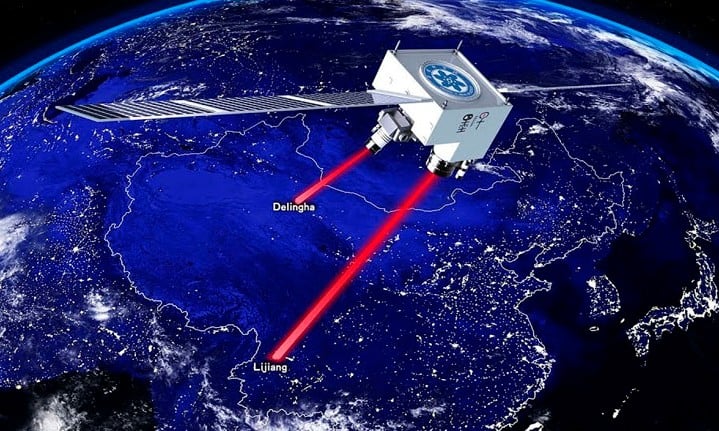
The Chinese physicist Pan Jianwei revealed that China intends to launch an ultra-secure global communications network based on quantum satellites within the next three years.
The statement was made during the Micius Quantum Prize press conference, where Pan explained that the construction of the constellation of satellites and integrated terrestrial networks is expected to be completed by 2027.
Pan, known as the “father of quantum”, detailed that he and his team plan to launch two to three satellites into low orbit next year.
Two years later, the plan is to put a satellite into operation in high orbit. These satellites will be connected to terrestrial quantum fiber optic networks across China, with the aim of making the network available for large-scale communications within the next five to 10 years.
The technology, according to South China Morning Postuses the properties of qubits, small particles that can be in multiple states simultaneously.
If someone tries to intercept the communication, any change in the qubits would be detected instantly, exposing the espionage attempt.
Proponents of the technology argue that it would make it virtually impossible to hack services such as banking and national defense communications.
The announcement comes amid global concerns about communications security, intensified by the ongoing war between Israel and the US, on the one hand, and Iran and regional allies, on the other, since October last year.
In the early days of the conflict, reports emerged that UK intelligence was monitoring Hezbollah communications in Lebanon from its listening post in Cyprus, part of the Five Eyes network.
In response, Hezbollah altered its communication methods, abandoning the use of cell phones in favor of technologies such as pagers and walkie-talkies.
However, reports indicated that Israeli intelligence managed to get the group to acquire electronic devices from a shell company, containing explosives that were detonated remotely, resulting in dozens of deaths and thousands of injuries.
Tensions over communications security are deepening due to the control the US and Israel have over global communications infrastructure, including companies such as Google e Metawhich manages WhatsApp.
In April, Meta was accused of providing communications data from Palestinians in Gaza to Israel. The data would have been used by Israel’s artificial intelligence targeting system, called Lavender, to carry out airstrikes.
Furthermore, the Starlinka subsidiary of SpaceX, announced the offer of satellite internet coverage in Yemen.
O Major General Khaled Ghoraba Yemeni military expert, told The Cradle that this action is related to US losses in naval operations in the Red Sea and is part of a broader strategy that combines ground actions with satellite intelligence.
Reports from Financial Times in March they highlighted that the US and UK faced intelligence difficulties in operations in the Red Sea, particularly in relation to the capabilities of Ansarallah-aligned forces. This underscored the Western need for a reliable spy network. Starlink’s presence in the region was highlighted as an important element in this context.
A Reuters also reported in March that SpaceX signed confidential contracts with the US Department of Defense for the development of a spy satellite system capable of detecting global threats in real time. The development of these technologies is part of an ongoing effort to respond to security and intelligence needs in conflict scenarios.
Source: https://www.ocafezinho.com/2024/10/09/china-anuncia-lancamento-de-satelites-quanticos-ultra-seguros/

